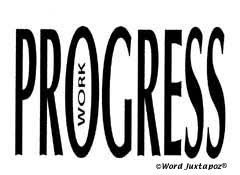Students, be sure to check out these featured Learning Links!
How to be a good language learner
How to understand more of what you read
How to get good homework grades
Thinking Blocks - Modeling Addition and Subtraction (1-300) : http://tinyurl.com/plmtjjh
Everything you want to know about Science Fair
Nutrition-Diet Food Science Experiments (special thanks to Alexa and Teresa Spivey's scientists for sharing!)
If the World Were a Village by David J. Smith
This highly informative book will get kids thinking and asking questions. It’s an eye-opener for all. These days, the world seems to be getting smaller. This timely, unique book enhances that sentiment. It is useful for a current understanding of the world’s population. Thought-provoking and highly effective, this world-in-miniature will open eyes to a wider view of our planet and its human inhabitants. This amazing book could be used in many different ways across the curriculum. Each chapter (on topics such as population, food and schooling) is accompanied by bright, folksy illustrations that make this global village look like a lively and interesting place. Includes a section on teaching children about the global village. The unique format shrinks the world’s population down to 100 and presents who we are, where we live, how fast we are growing, what languages we speak and more.

Enter your creative story or poem in one of WordPress' many writing contests! http://writingcontests.wordpress.com/
| Study Tips
35 Must-Know Test-Taking Tips & Strategies (Thanks for sharing Daisy!) Here are some of the best study techniques as well as some additional secrets to academic success from students themselves!
| ||||||||
"Little brothers do NOT make good study partners!" "I eat a snack before I study so I'm not hungry and thinking about dinner when I'm trying to study" "If I make the charts in different colors it helps. I can write about desert animals in brown marker and sea creatures in blue and tropical animals in orange. It helps me to see the page (remember it) when I take a test" A special thanks to Nancy Cashian's Summer Excellence students for sharing this wonderful Test Taking Tips link: http://www.veritasprep.com/online-reference-for-test-preparation/ |
| |||||||
| Community Projects |
Box Top Fundraiser
The creation of a thousand forests
is in one acorn.
~Ralph Waldo Emerson
